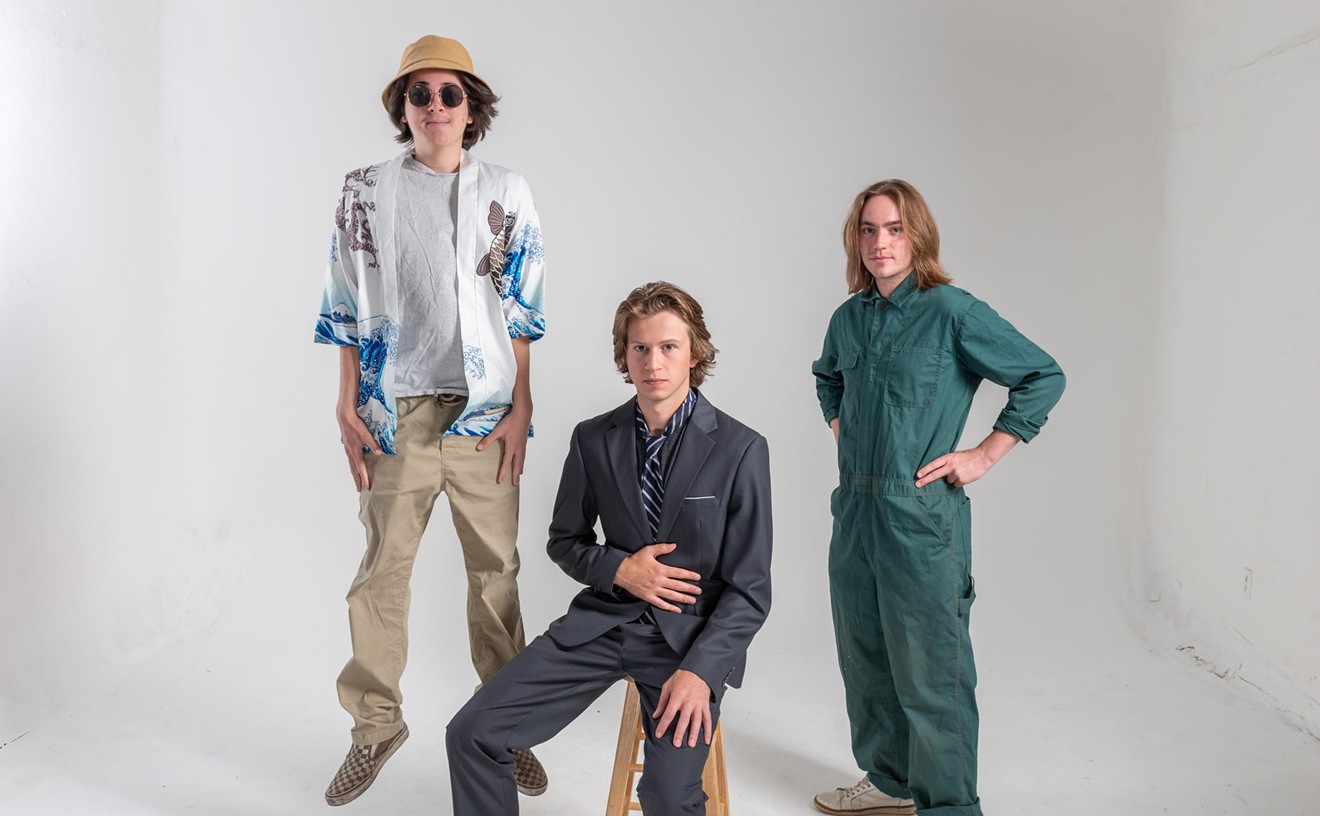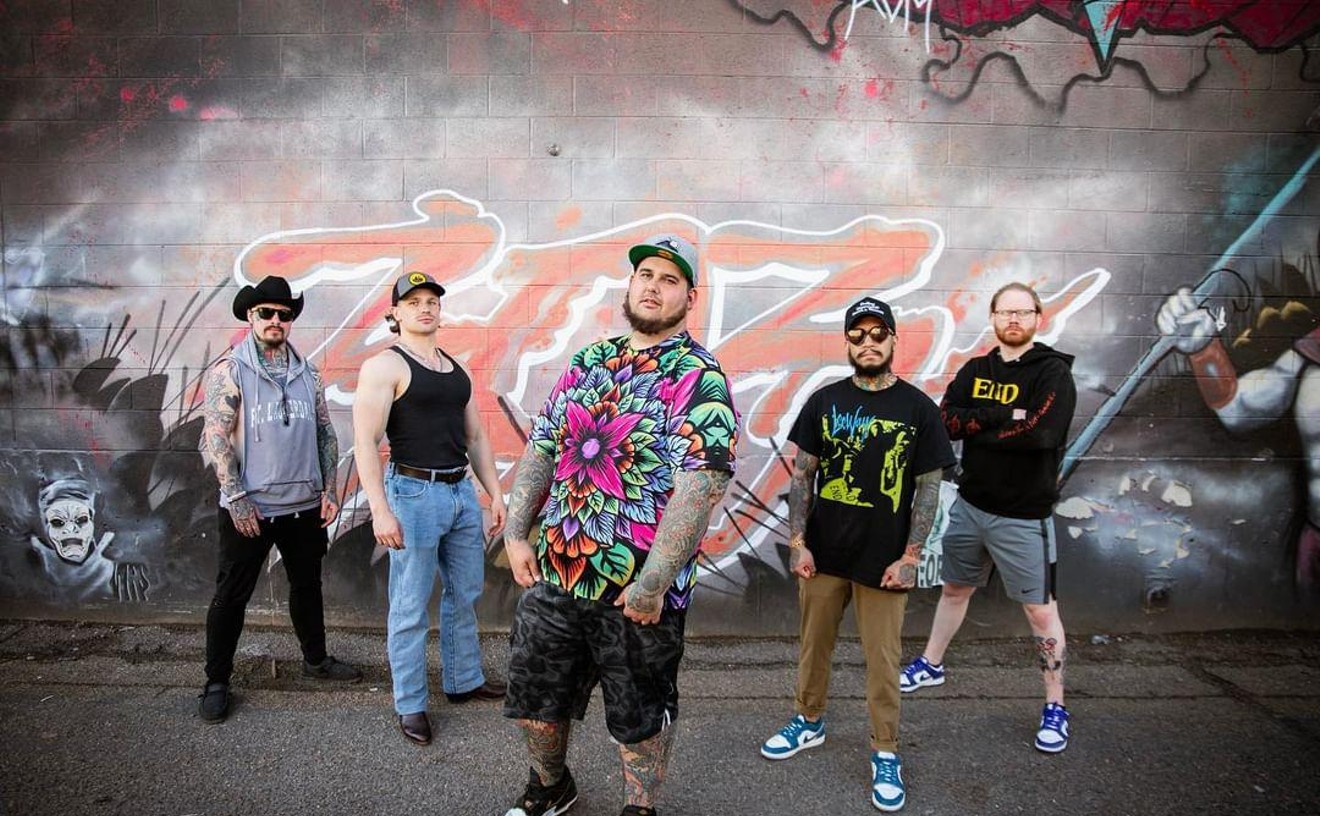When Specials co-founder Jerry Dammers launched his 2 Tone Records ska revival label in England in the late '70s, it sparked a 2 Tone movement with bands like his own, along with Madness, Bad Manners, the Bodysnatchers and the Selecter.
The Selecter’s vocalist, Pauline Black, says the whole idea of the 2 Tone movement was to bring black and white people together on stage and say to those in the audience, “Hey, look, if we can do it, we can join together. We can celebrate the things that unite us rather than the things that divide — or seemingly divide — us, then that was going to be a positive."
She continues, "And when we were doing that 37 years ago, of course, the word ‘multiculturalism’ hadn’t been invented. And you were hard-pushed at that time to really tell anyone that they were racist because they just thought that’s the way things worked.”
Black says the 2 Tone movement, which is still prominent today, is like an umbrella that welcomes different subcultures like mods, punks, skinheads, rude boys and rude girls, “as long as we’re all fighting against racism and looking toward a multicultural world.” And the Selecter’s latest album, last year’s Subculture, is a celebration of those subcultures while also delving into socio-political issues like “Breakdown,” which is about police brutality.
Looking back to the Selecter’s 1980 debut, Too Much Pressure (which the band will be playing much of in Denver), Black says that the band's intent hasn't really changed since then. “Because no tectonic plates have really moved as far as we’re concerned,” Black says. “Maybe they’ve moved in other areas. But as far as that whole black-white thing going on in society, those tectonic plates have moved but there hasn’t been any real seismic kind of alleviation of the pressure. It’s too much pressure then, and it’s still too much pressure now.”
Black also says that “On My Radio,” the band’s best-known song worldwide, rang true when it was released in 1979 and is still pretty much true these days.
“There is never a lot of ska music that gets played on the radio, but when it does, people always seem to really think that’s a good idea and you get up and we all start moving,” Black says. "We always said it was not only music to sort of tickle the soles of the feet, but it was there to tickle brain cells as well.”
Tickling of brain cells and the soles of people’s feet dates back to around the same time that Black and original singer Arthur “Gaps” Hendrickson first met, nearly four decades ago. Since then, Black says, they’ve never had a fight, but they’ve had differences of opinion that haven’t been resolved.
“That’s what you should bring to the stage,” Black says. “You respect each other and what each of you individually brings... It’s been a really good relationship. It’s getting better and better all the time."
Black says she and Hendrickson fronted the only female/male-led band in the early days of 2 Tone, and it gave them a bigger breadth of opportunity to do different kinds of material. Their individual backgrounds also affected how they approached the music.
“Gaps comes from the Caribbean,” Black says. “He has Caribbean origins. He is from St. Kitts. He was brought up by his grandmother on a banana plantation. He used to cut sugar cane before he went to school, and he went to school with no shoes — one of those kind of things. He brings all that history with him."
Black, on the other hand, was born in England and brought a different set of experiences to the band.
“My father was Nigerian and my mother was Jewish," she says. "I was adopted, and I was brought up by a white family here. A white working-class family. So that gives me a completely different spin, if you like, on the world. And Gaps came here when he was twelve. We have a lot of shared experience in terms of how we saw the world as outsiders. How we saw Britain as an outsider and such. And that, I think stands you in good stead to be in a band that is putting black people and white people together because we can see what is going on in Britain — and not just Britain, but in America as well, from both sides of the divide.”
The Selecter, with the Dendrites, 8 p.m., Saturday, October 8, Gothic Theatre, Englewood.
[
{
"name": "Air - MediumRectangle - Inline Content - Mobile Display Size",
"component": "12017618",
"insertPoint": "2",
"requiredCountToDisplay": "2",
"watchElement": ".fdn-content-body",
"astAdList": [
{
"adType": "rectangle",
"displayTargets": "mobile"
}
]
},{
"name": "Editor Picks",
"component": "17242653",
"insertPoint": "4",
"requiredCountToDisplay": "1",
"watchElement": ".fdn-content-body",
"astAdList": [
{
"adType": "rectangle",
"displayTargets": "desktop|tablet"
},{
"adType": "rectangle",
"displayTargets": "desktop|tablet|mobile"
}
]
},{
"name": "Inline Links",
"component": "18838239",
"insertPoint": "8th",
"startingPoint": 8,
"requiredCountToDisplay": "7",
"maxInsertions": 25
},{
"name": "Air - MediumRectangle - Combo - Inline Content",
"component": "17261320",
"insertPoint": "8th",
"startingPoint": 8,
"requiredCountToDisplay": "7",
"maxInsertions": 25,
"watchElement": ".fdn-content-body",
"astAdList": [
{
"adType": "rectangle",
"displayTargets": "desktop|tablet"
},{
"adType": "rectangle",
"displayTargets": "desktop|tablet|mobile"
}
]
},{
"name": "Inline Links",
"component": "18838239",
"insertPoint": "8th",
"startingPoint": 12,
"requiredCountToDisplay": "11",
"maxInsertions": 25
},{
"name": "Air - Leaderboard Tower - Combo - Inline Content",
"component": "17261321",
"insertPoint": "8th",
"startingPoint": 12,
"requiredCountToDisplay": "11",
"maxInsertions": 25,
"watchElement": ".fdn-content-body",
"astAdList": [
{
"adType": "leaderboardInlineContent",
"displayTargets": "desktop|tablet"
},{
"adType": "tower",
"displayTargets": "mobile"
}
]
}
]











